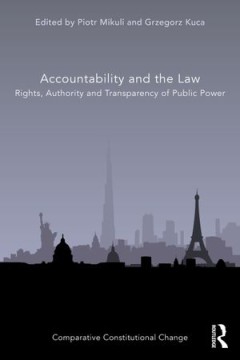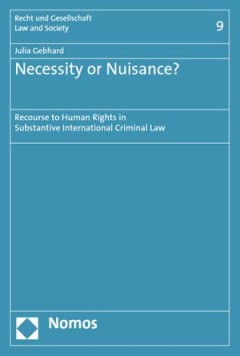Filter by

Persuasion and legal reasoning in the ECtHR Rulings: balancing impossible dem…
Introduction 1 Challenges of judicial reasoning in beginning and end-of-life cases 2 Ways of judicial reasoning ⁰́₃ outline 3 Ways of reasoning in medically assisted procreation and surrogacy cases 4 Ways of reasoning in abortion cases 5 Ways of reasoning in end-of
- Edition
- -
- ISBN/ISSN
- 9781003375999
- Collation
- -
- Series Title
- -
- Call Number
- -

Timor-Leste's Bill of Rights : A Preliminary History
The Constitution of the Democratic Republic of Timor-Leste of 2002 contains over 40 human rights provisions in its Bill of Rights. In addition to providing an overview of the process leading up to the adoption of the Constitution, this book brings together information relating to each section of the Bill of Rights, presenting: progressive texts produced during the process of the Constituent …
- Edition
- -
- ISBN/ISSN
- 9781925022391
- Collation
- -
- Series Title
- -
- Call Number
- 900 DEV t

Accountability and the Law : Rights, Authority and Transparency of Public Power
This book discusses contemporary accountability and transparency mechanisms by presenting a selection of case studies.The authors deal with various problems connected to controlling public institutions and incumbents’ responsibility in state bodies. The work is divided into three parts. Part I: Law examines the institutional and objective approach. Part II: Fairness and Rights considers the s…
- Edition
- -
- ISBN/ISSN
- 9781003168331
- Collation
- 234 halaman
- Series Title
- -
- Call Number
- 340 MIK a

Necessity or Nuisance? : Recourse to Human Rights in Substantive Internationa…
What are chances and challenges of referring to human rights law in defining crimes under international law? Under what circumstances is a reference to human rights law dogmatically appropriate and practically likely? The answers to these questions are explored through a look at the theoretical framework, practical application in jurisprudence as well as empirically through interviews with judg…
- Edition
- -
- ISBN/ISSN
- 9783848744275
- Collation
- -
- Series Title
- -
- Call Number
- 340 GEB n

Terrorism, Criminal Law and Politics : The Decline of the Political Offence E…
Recent atrocities have ensured that terrorism and how to deal with terrorists legally and politically has been the subject of much discussion and debate on the international stage. This book presents a study of changes in the legal treatment of those perpetrating crimes of a political character over several decades. It most centrally deals with the political offence exception and how it has cha…
- Edition
- -
- ISBN/ISSN
- 9780429583414
- Collation
- 300 halaman
- Series Title
- -
- Call Number
- 340 JAN t
 Computer Science, Information & General Works
Computer Science, Information & General Works  Philosophy & Psychology
Philosophy & Psychology  Religion
Religion  Social Sciences
Social Sciences  Language
Language  Pure Science
Pure Science  Applied Sciences
Applied Sciences  Art & Recreation
Art & Recreation  Literature
Literature  History & Geography
History & Geography